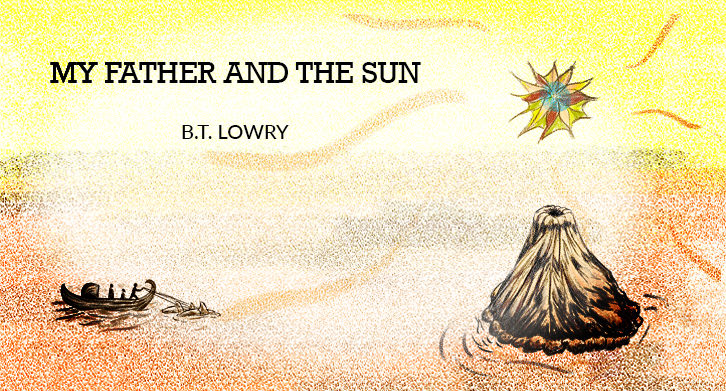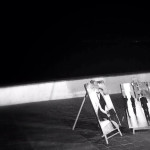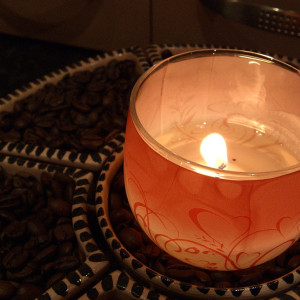Man’s greatness even in his concupiscence. He has managed to produce
such a remarkable system from it and make it the image of true charity.
–Blaise Pascal, Pensees
***
This is the story of my one hiring failure: how I made the wrong decision, and how I made the right one in the end.
This happened seven years ago, when the worst of the social diseases had passed but the plagues were still fresh in everyone’s mind. So business at the restorative resorts was better than ever — and employee screenings and compliance were more important than ever.
I got a lot of stick for hiring humans. We’re one of the species the social diseases hit hard. In our human bodies, the plague manifests as immunosuppression — we’re wide open to every nastybad that wanders through air or bloodstream, and we can spread it across species lines.
Human staff have unique advantages, though. We’re clever — more in our actions than in our words or gestures — and we bring a flamboyant artistic flair to the hospitality business. So I wasn’t about to quit hiring humans. I determined to do better and to implement more thorough pre-employment screening, which I supervised personally.
I don’t have a problem with ex-cons, as anyone who read that piece on my arrest last year knows. (“Hard-Drinking, High-Living Trinh Tatchell Spends a Night on the Rocks.” I love that headline. I have it scrolling across my office wall, over the cocktail island.) Many of my best staffers have a few criminal convictions. Yeah, even at a class joint like Octaviana. Why is this? I’m not sure, but here are a few theories:
Ex-cons are grateful for a second (or fifteenth) chance. We had to make one girl wear a mask because her face was drug-scarred like meteors had hit her — but she’d gotten clean, and I’ve never seen somebody work so hard in our massage lab.
Or, the exact reverse: ex-cons are hedonists. Some of my crew are hard-drinking and high-living for sure, so they think creatively and can anticipate a client’s needs. They think like the client. Ex-cons have invented one of our most popular drinks (the Hurricane Cynara), six of our eight exclusive live-action games, and the formula for our famous lava bath. They love their work. They come in early and leave late for the fun of hurling fire at laughing, dodging clients, or performing their prison dramas on the snow lanai.
Ex-cons know how to please people. You either adapt or go under in most prisons. Ex-cons can read people, let me know when a client will be trouble, can mollify and flatter or give just the right amount of sass to make the clients pleased with their own tolerance.
And yet ex-cons can also be crazy freaks with impulse control issues who will run a kitchen or a laundry on stimulants and bravado until you fire ‘em. I love these guys, because if you intimidate them just once, you’re their girl for life. Or at least until you fire ‘em.
So I don’t worry when somebody’s last job reference is a laundry boss at an offworld pen. In this particular case, the guy (we’ll call him Masao) even had a prison advantage: He’d done time with one of my favorite sous chefs, another human whom we’ll call Harold. Harold remembered him, and vouched for him. He said Masao was, and I quote, “humble, patient, adaptable, professional, and kind.”
As you can guess, this description set off a few alarms for me. “Humble, patient — that’s perfume,” I told Harold. “But how is this guy supposed to be both professional and kind? Do you mean he gives the impression of being kind, or what?”
Harold took my meaning immediately. “I wouldn’t worry,” he said, although looking back I seem to recall that he hesitated. I failed to sniff the warning in the air. “He’s adaptable. He’ll be completely professional.”
Yeah. Not reassuring. I grilled Masao. “We’re under quarantine,” I pointed out, in case he’d missed the big yellow signs and warning scents. “Tell me what that indicates to you.”
He searched my face briefly, and said, “Maintaining a professional attitude is the key to the prevention of social disease. No gratuitous acts, no actions taken to succor or shelter anyone who is not a paying client.”
“Good. That isn’t actually right — you can help the staff here, bosses and coworkers and subordinates, as long as it’s done from your self-interest. I’m helping you now, by telling you this, and there’s no danger. But you’ve got the basic idea.”
Just in case, I gave him my standard spiel on avoiding plague. Humans, as a species, are sloppy with the truth. That’s part of what makes us so good at serving in and managing restorative resorts, but it also means that eighty percent of what we think we know is a mix of misinformation, wishful thinking, and masochistic paranoid fantasy. Even with the plague, which threatens both our lives and our social positions, humans don’t always bother to get the facts.
So I laid it out: Once the infection becomes active, humans have a 50% survival rate and a near-100% contagion rate. We are most likely to spread plague through contact with other humans, but we are capable of infecting or activating all of the known susceptible species.
The earliest form of plague found in humans became active during times of heightened levels of oxytocin. That early variant was all but eradicated in our sector when the new, more virulent form arose.
This new strain of plague is more similar to the kind suffered by most other susceptible species. Little is known about which chemicals or brain-states it responds to, which is why we can’t screen for infection during the hiring process. All we can do is watch transmission patterns to learn what to avoid; there’s no vaccine, and despite what half a hundred rumors will tell you, there’s no cure. Controlled experiments found that merely extending help to another person will not transmit or activate plague. The aid must be offered as a form of kindness — to use an awkwardly unscientific term.
“How do I know if — if I’m being kind?” Masao asked, ducking his head anxiously. He shifted his feet in the restorative tea washing over the floor. (It doesn’t actually have any chemical effect for humans, but we still find it soothing, maybe from watching other species enjoy it.)
“You don’t,” I told him. “No one can be sure how much… love, I guess you’d say, will activate the infection. That’s why it’s imperative that you serve others only within the parameters of your job. We make our living on the appearance of kindness — and our clients trust us to know the difference between the image and the substance.”
I lectured him some more, and he responded with expressions of gratitude and compliance. I saw in him a mix of good manners and bad luck — my favorite industrial compound. I sent him off to do the blood tests and brain scans, and when they came back clear, I made the hire.
For many long months, I forgot about him, or noticed him only fleetingly in the interstices of Octaviana’s daily crises. Over time I accumulated evidence that he and Harold were a couple. They shared that unmistakable cloud-cover of surreptitious communication and unspoken connection. When something went wrong they glanced first at one another, involuntary looks of alarm and concern. At times the space between them seemed to pulse with longing, its emptiness making their intimacy more obvious, like the vase you suddenly see between two silhouette faces.
That worried me a little. Not because such liaisons are against the rules — they are, but they always happen, and I don’t have time to be the sex police. The kitchen, where Harold worked, and the service staff, where Masao worked cleaning rooms and calling down more exotic requests to room service, are both very high-stress arenas. The staff there work better when they know they can get the erotic and affectional release they need.
But sexual connection among humans is volatile. It can be a mutually fulfilling exchange, need for need, strange longings satisfied — or it can sharpen longing, intensify estrangement, push us to acts of great courage and great stupidity. And as my best friend from resort school liked to say, love is just courage plus stupidity over time. I know of seven other species with at least one language in which the term “making love” is a euphemism for sex; and if any of my employees’ sex made love, we might lose our quarantine status and bring activated plague into Octaviana.
So, in between clearing a noisy, invasive fungus out of the laundry and renewing our spacewalk permits, I found time to interrogate Harold and Masao. They persuaded me that they understood the nature of the plague, and were aware that they would lose their jobs, their freedom, and possibly their lives if they went beyond a mutual exchange of wants. (Many people, on hearing of the difficulties involved in running Octaviana, ask why we don’t just put in universal surveillance. Our clients would revolt if we did. Would you want your every action public, if you were at the finest restorative resort in the universe? We cater to all our clients’ legal needs — and just about everything is legal here, including many that break their species’ strongest taboos. So no, I can’t just put in surveillance. We’d go out of business the very next day.) I kept them on: my second bad decision.
A while later, a minor celebrity came to Octaviana to uncoil. He was a human named Shadrach Kelly. Pretty much nobody’s ever heard of him, but he was a big deal to the humans in our sector. He’d instigated an award-winning political prank, and so he was not only demi-famous but demi-admired.
Kelly was also a short, violent, obnoxious drunk. Within his first sixteen days at Octaviana, he had caused me seven separate headaches.
He tried to swim in the lava baths. (What about “HEATPROOF GUESTS ONLY” is so hard to understand?) He pitched a screaming fit because we didn’t stock Asti Spumanti, an Earth liquor even I had never heard of. He tried to make Masao, his room attendant, perform one of the very few acts that are illegal even in Octaviana. And this isn’t even counting all the trouble I didn’t hear about. When I went up to his suite to deal with the Asti Spumanti situation, it reeked of disinfectant — which he also complained about, but that was Masao’s problem, not mine.
It was with a great and terrible glee, then, that I learned he had been stripped of his fortune and remanded to a Sector Six prison for tax fraud. The agents who came by to bring him in requested a full perp walk, and I was more than happy to oblige. We put out a news release, and offered our in-house transmission center to both media and law enforcement. I noticed that someone — probably someone who’d met the foul little rodent — had put floodlights all along the route they’d take to the transport carrier. A crew of the human employees asked for, and received, leave to line up along the route and spit on him as he went by. (This particular form of humiliation is almost unique to humans, and often misunderstood by other species — cross-culturally, spitting is more likely to be a sign of affection than disgrace. That might be why humans are so sensitive to it. If somebody does it with intent to insult — well, for humans in the near-Earth sectors especially, it’s one of the worst things you can do. I’m not sure why — maybe because it reminds us that we’re only humans, or maybe just because it reminds us of home — but I’m very sure Shadrach Kelly deserved it.)
I was giggling as I stretched out in a chaise longue in the lobby to watch. The agents were having a great time too, hamming it up, joking with each other. Mob scene in the lobby.
And then they got to Kelly’s suite and he wasn’t there. I got to watch on my phone as they went from room to room, looking under the bed, opening up the tank, pulling back the curtains. They stopped joking. I stopped giggling. They started threatening me with a charge for aiding in the escape of a fugitive. Our lawyers got on the phones, and I put headache #8 on Kelly’s account.
It was a PR disaster. They did find him eventually — he’d been smuggled onto the transport carrier and shipped off to the pokey an hour before his ritual humiliation was scheduled to begin. I had news and entertainment, compliance education, everybody and his brother’s cousin’s parakeet yelling at me.
Masao was one of the first people I interrogated, since as Kelly’s attendant he might have seen something. And he confessed immediately. “I couldn’t put him through that,” he said quietly.
“You have five seconds to save your job, you broke-brained patchwork donkey. Why’d you do it?”
“They were going to spit on him.”
“He spat on me!”
Masao actually had the gall to grin. “Yeah, he spat on everybody. But still, that doesn’t make it okay. He was already going to prison — they didn’t have to do it like that.”
“You — Oh. Oh no. Oh, you sorry, sorry human — you did it out of pity?” He didn’t say anything. I grasped for straws. “He didn’t bribe you? Tell me he bribed you.”
“With what credit?”
I don’t like firing people, but I’ll do it. I really don’t like firing good workers, and up until then, Masao was one of my best, which is why he’d gotten stuck with Shadrach Kelly in the first place. But he had to know it was coming. “When did you do it?”
“Only six hours ago. Don’t worry, I’m not contagious yet.”
“Yeah. You have one hour to get out of my resort and off my planet. I’m calling your ID in to the quarantine center. What you do next is up to you.” The quarantine trackers are very efficient, and compliance in the resort sectors is near-total. He had the grace to flinch as I keyed his number in and sent it.
I stared at him: this quiet, patient man, his palms chapped, a big burn across his face where one of our heatproof guests had gotten handsy. “You could die.” He didn’t say anything. “You could die for the sake of Shadrach Kelly’s dignity! What is wrong with you?”
“He said it would kill his mother to see him like that.”
I managed not to scream until he’d left my office.
Within a few minutes, the nervous system told me he’d left Octaviana. But my problems weren’t over. He’d denied that anyone had worked with him, but he was no longer a trusted employee. I had to verify his denial.
Personal, in-depth interrogation turned up nothing. But I had my compliance staff search the belongings of any employee I knew to be close to Masao, and in Harold’s belongings they found something I hadn’t seen since I was a little girl.
No one else knew what it was. They thought it was some kind of jewelry or puzzle: a small, flat gold box in a sunburst shape, wrapped in a thin scarf of faded purple cloth, with small white tiles dappling its length. Each tile had been etched with a mysterious symbol, and a dark paste had been rubbed into the grooves to make the symbol — a circle connected to a bunch of teeth with a line, basically — stand out blackish-red against the off-white of the tiles.
Just the sight of it flooded me with memories of my auntie — my crazy auntie, my favorite. She’d taught me that the symbol was a key, an Earth key so old-fashioned even she had never seen one except in cartoon form on the bone-tiles of a stole. I reached out a hand, superstitious, my fingers yearning toward and fearing the bone-tiles, the martyr’s paste rubbed into the etching of the key. That intense, sensual intimacy hadn’t signified sex; it had been the intimacy of confessor and penitent.
I fired Harold, despite his protests that he hadn’t consecrated bread or touched his vestments in years, he only kept the pyx and stole for sentimental reasons, he was an apostate and he wasn’t infected. He said Masao had begged him for confession but he’d never done it. I called him in to the quarantine center anyway.
I don’t regret that decision, not as a businessperson. I really had no choice. For years afterward, I was terrified that plague would break out in Octaviana. The plague has a long incubation period in both stages — the initial infection, and then the activation. So Masao could have come into contact with a plague-carrier before he even came to Octaviana, while he was still in prison; and even if he never met another carrier as long as he lived, he would still be at risk of activation if he performed any unwarranted kindnesses in the next three years. Meaning that everyone who’d had contact with him between his kindness to Kelly and his capture by the quarantiners was also at risk of activation for up to three years, including me, and, by the way, that all those people were barred from kindness for at least that long upon pain of death. We escaped that danger, but for a long time after that I was reluctant to hire humans; these guys had made us look really bad. For the record, the vast majority of humans are competent, and as unlike Shadrach, Masao, and Harold as you can imagine.
But that night I had a hard time getting to sleep. I lay down on the floor in my suite, and turned the tea on. It started to swirl at the small of my back, soothing me; but I still slept poorly. I felt like a little child again, helpless and full of remorse, in a world I didn’t understand: incompetent.
I dreamt of the really bad days of the plague, when I would kneel on the snow lanai and watch the guests disporting themselves and think of all my friends who were dying, their strength failing them and their flesh wasting away like the snow melting beneath my knees and hands. So many of my friends from resort school were dying in those days. Professional conferences had smelled like hospitals; introductory breakfasts all started with a roll call of the dead. I dreamt of my friend Shelters from Cold Nights, the one who had said that line about courage plus stupidity over time, shaking her scarlet hair when I made a joke through the quarantine intercom until the hair fell out in hanks onto her hospital bed and I couldn’t figure out what to say anymore. The nurse reminded her not to comfort me — it would only make her weaker.
I would never do anything to bring that horror into Octaviana. So I don’t regret a thing. But even now, whenever I think about Shadrach Kelly, I wonder what my auntie would say. She died of plague herself, so she’d know how important the quarantine is; but she told me, on her deathbed, that she didn’t regret the small kindness that had activated her infection. I still think about what she would say to me now. I’m pretty sure she’d be angry at Harold too, just like I am — but I can’t help thinking it would be because he might not have heard Masao’s confession, not because he might have.
***
Eve Tushnet is a freelance journalist in Washington, DC. She has had fiction published in Dappled Things and Doublethink magazines, and journalism published in a wide range of outlets, including Commonweal, USA Today, and the Washington Blade.
photo credit: DSC_5581 via photopin (license)










